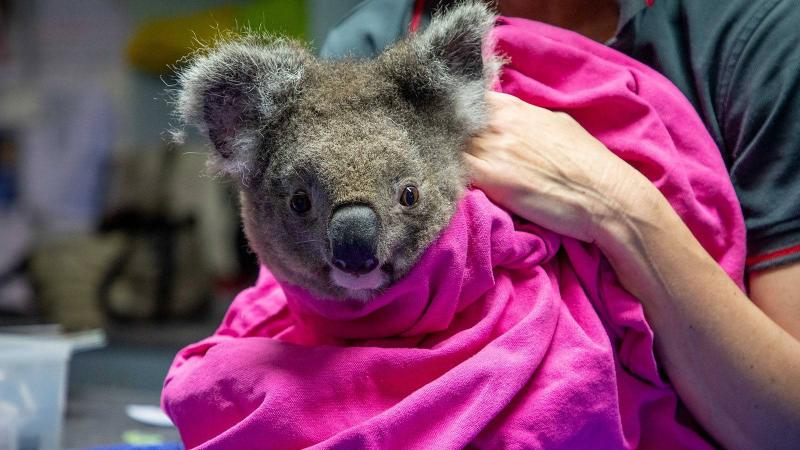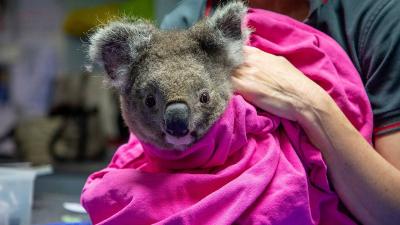A new study conducted by researchers from the Leibniz Institute for Wildlife Research and Animal Conservation has revealed that a type of virus infects koalas and causes cancer.
Experts reported that fifty thousand years ago, a virus infected koalas in their eggs or sperm cells, causing their descendants to carry the virus in all their cells today. The virus integrates itself into the DNA of the infected cell near cancer-related loci. Currently, koalas throughout Queensland and New South Wales in Australia carry fragments of the KoRV virus in their genetic makeup.
The study's authors explained: "Retroviruses are biological intruder viruses that affect the host in potentially harmful ways, including disrupting or altering gene expression, resulting in a continuous struggle between the virus and the host, sometimes referred to as 'the invasion of the host's germ line by the retrovirus,' which has been observed over millions of years. During this time, viruses can repeatedly integrate into the host genome, causing further mutations in the germ line." The Leibniz Institute team previously showed that ancient retroviruses present in the koala genome could help in the rapid degradation of the KoRV virus.
According to the researchers, koalas are essentially in a race for survival against the effects of the KoRV virus long enough for the virus to degrade. There has been a high rate of lymphoid cancer, leukemia, and other types of cancer observed among koalas in northern Australia. Experts used DNA sequencing to determine multiple links between the KoRV virus and genes known to be involved in the cancers found in wild koalas.
Furthermore, researchers noted that the analyzed cancerous tumor tissues contained many new copies of the KoRV virus, suggesting that the virus was more active in cancerous cells. These copies tend to be located near cancer-associated genes. While other factors may contribute to cancer in koalas, the mutational burden from the coronavirus is likely increasing the frequency of cancerous cells and could also shorten the time it takes for cancer to develop.
Researchers indicate that these findings are particularly concerning at a time when koalas face numerous environmental and health issues, including accelerating habitat loss due to wildfires, dog attacks, and lethal chlamydia infections.




